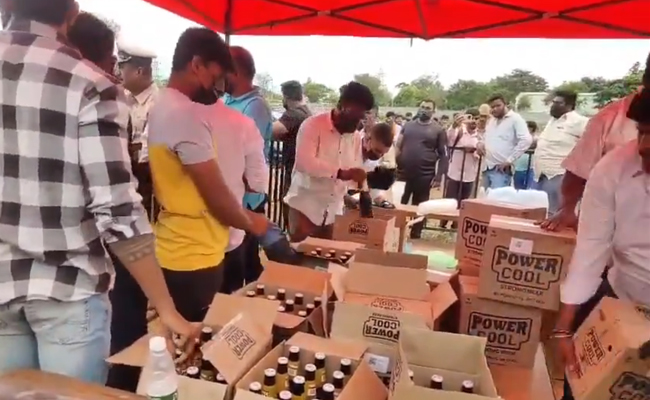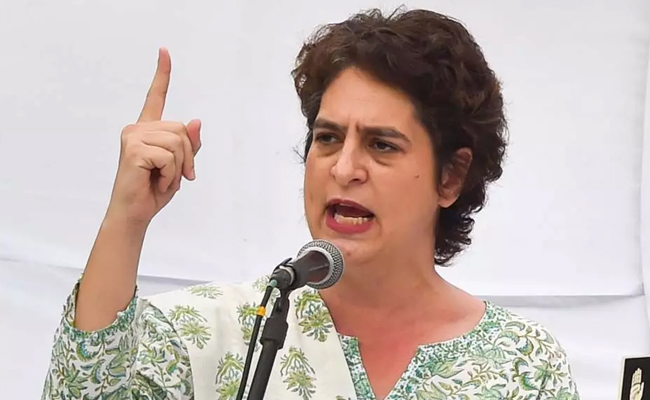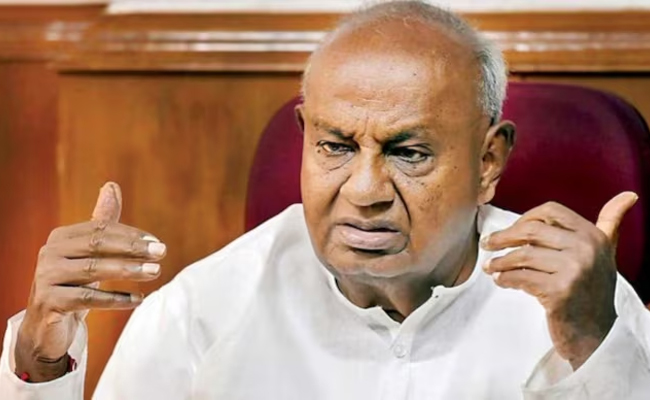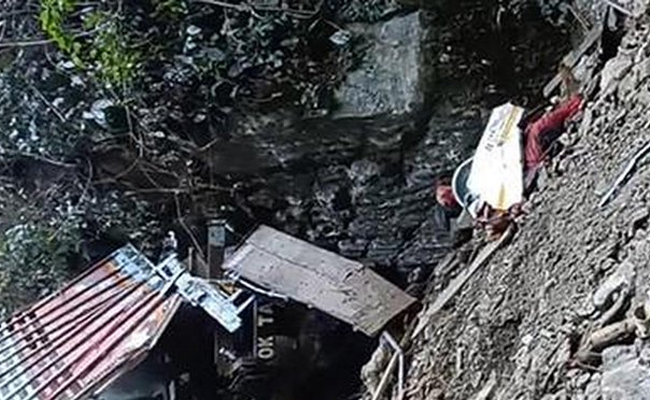Bengaluru: A thanksgiving event for BJP-JDS workers, hosted by the newly elected Chikkaballapur BJP Lok Sabha member Dr. K Sudhakar in Nelamangala on Sunday, descended into chaos as attendees scrambled to collect free liquor being distributed at the venue. The event, allegedly sponsored by Nelamangala BJP president Jagadish Chowdhary, saw police struggling to manage the crowd and eventually had to stand by as the situation spiraled out of control.
According to eyewitnesses, the event featured non-vegetarian food, beer, and packets of hard liquor. Many participants were seen passing out at the venue. Organizers had expected a crowd of 10,000-15,000, but over 60,000 people turned up, making crowd control nearly impossible, said a police officer. “Even with the expected numbers, it would have still been difficult to control the crowd,” the officer added.
A letter has also surfaced in which BJP MP Sudhakar had previously written to the police department requesting security for the event, explicitly mentioning that alcohol would be served.
Bengaluru Rural SP CK Baba had earlier instructed the excise department not to grant a liquor license, but this directive was ignored.
"The Police department had placed restrictions and told the organisers not to serve alcohol at the event. They were also told that cases would be booked if they violated the conditions. However, they took permission from the Excise Department to serve alcohol," SP CK Baba said.
Excise Deputy Commissioner Nagesh Kumar stated that the organizers applied for permission and paid a fee of Rs 11,500, after which a one-day license was issued.
Assembly Opposition Leader R Ashoka, former MLA Nagaraju, and former MLC E Krishnappa from JDS also attended the event. Dr. Sudhakar distanced himself from the liquor distribution, claiming, “I am not aware of the distribution of liquor and I do not encourage such things. The participants might have bought liquor somewhere and had it at the venue.”
Health and Family Welfare Minister Dinesh Gundurao criticized the event on social media, stating, “Saying one thing, doing another, how to believe them (BJP)... BJP leaders are busy distributing liquor while the state is dengue-stricken. Where are the BJP leaders who questioned venturing into swimming when I visited Mangaluru? Is this (distribution of liquor) your culture?”
Sudhakar defeated Congress candidate MS Raksha Ramaiah by over 1.5 lakh votes.
Chikkaballapur, one of Karnataka's 28 Lok Sabha seats, was established in 1977 after the reorganization of Indian states. The constituency saw a 77% voter turnout in the second phase of the Lok Sabha elections on April 26.
BJP newly elected MP from chikkaballapur Dr K Sudhakar holds open alcohol party to thanks voters.
— Shantanu (@shaandelhite) July 8, 2024
People were brought in trucks and alcohol bottles were distributed among them.
Sanskar of the BJP …. pic.twitter.com/UxUHThjgDk
Let the Truth be known. If you read VB and like VB, please be a VB Supporter and Help us deliver the Truth to one and all.
New Delhi (PTI): Congress leader Priyanka Gandhi Vadra on Monday slammed the government over its move to change the name of MGNREGA, asking what is the government's intention behind removing the name of Mahatma Gandhi who is the tallest leader not just in India but in the world.
A bill to repeal the MGNREGA and bring a new law for rural employment -- Viksit Bharat Guarantee for Rozgar and Ajeevika Mission (Gramin) (VB-G RAM G) Bill, 2025 -- is set to be introduced in the Lok Sabha. According to a copy of the bill, it seeks to introduce the VB-G RAM G Bill, 2025, in Parliament and repeal the Mahatma Gandhi National Rural Employment Guarantee Act (MGNREGA) of 2005.
Asked about the government's move, Priyanka Gandhi said, "Whenever the name of a scheme is changed there are so many changes that have to be made in offices, stationery... for which money is spent. So, what is the benefit, why it is being done?"
"Why is Mahatma Gandhi's name being removed. Mahatma Gandhi is considered the tallest leader not just in the country but in the world, so removing his name, I really don't understand what is the objective? What is their intention?" she told reporters in Parliament House complex.
ALSO READ: Ex-PM Devegowda warns opposition of electoral losses if they continue to allege 'vote chori'
"Even when we are debating it is on other issues not the real issues of the people. Time is being wasted, money is being wasted, they are disrupting themselves," Priyanka Gandhi added.
The bill aims at establishing a "rural development framework aligned with the national vision of Viksit Bharat 2047", by providing a statutory guarantee of 125 days of wage employment in every financial year to every rural household whose adult members volunteer to undertake unskilled manual work.
The bill has been listed in the Lok Sabha in the supplementary list of business issued on Monday.
Rural Development Minister Shivraj Singh Chouhan, in the statement of purpose of the Bill, said MGNREGA has provided guaranteed wage-employment to rural households over the past 20 years.
However, "further strengthening has become necessary in view of the significant socio-economic transformation witnessed in the rural landscape driven by widespread coverage of the social security interventions and saturation-oriented implementation of major government schemes", he said.





